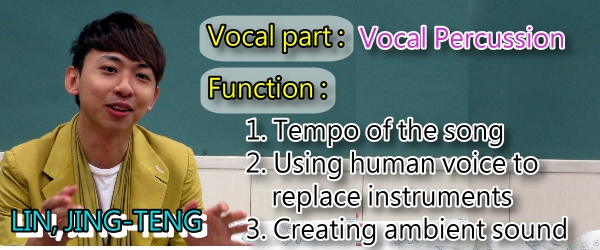| |


Mimicking instruments
Beatboxing can mimic lots of instruments. We will look at jazz drums mostly. Besides aspirated articulation, there is also unaspirated articulation. No matter which way of articulation is adopted, they can add more dimension to the music to make it stand out.
 |
|
Close the mouth tightly, stress the lips, then articulate the ‘bu’ sound, just like puffing into the microphone. The sound of drum has different varieties, like a nasal sound of ‘en,’ or blocking air coming from the throat, and then let it burst out. The most commonly used sound is ‘bu.’ |
 |
|
One way to do it is by making the sound of ‘zi’ in pinyin and then make it shorter to sound like ‘ci.’ A variation is the sound of ‘qiu’ in pinyin, similar to the sound that cymbals make when the petal is pressed down. |
 |
|
The sound is like ‘ge-si.’ For starters, the sound of ‘ge’ will be softer, and keep practicing and it should get louder. For the ‘si’ sound coming from a snare drum, I would make the ‘ge-si’ sound to do it. |
Forming different music genre
With these beatbox techniques, you can use them to make some beats. Different combinations of them can create different types of rhythm for rock, funk, and more.
Animal sounds and ambient sounds
Besides mimicking instruments, we sometimes have to mimic ambient sounds or animal sounds for the music.
Source: the Beautiful Voices
Photos and sounds: Demonstration by HanGuang Vocal Band, recorded by the Beautiful Voices 
|
|












